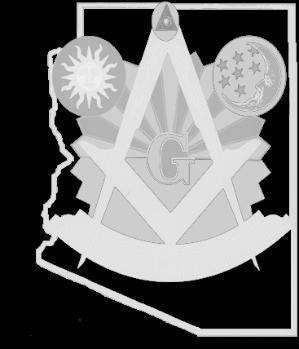
4 minute read
Junior Grand Deacon Worshipful Brother
Junior Grand Deacon Worshipful Brother Michael A Dale
What Are The Duties of a Mason
Advertisement
President Andrew Jackson said, "Freemasonry is an institution calculated to benefit mankind." These benefits are achieved through the diligent fulfillment of the duties of its members –faithful Masons who strive to live by a moral code exemplified allegorically through the degrees of Freemasonry and explained in its three Charges. By their conduct, they serve as an example to all humanity, and by their courtesy, kindness, and benevolence, they provide assistance that is more tangible.
In general terms, a Mason is obliged to abide by the constitution, laws, and edicts of the Grand Lodge of his jurisdiction or where he is present, and the by-laws of his particular Lodge. He is to maintain and support the Landmarks and ancient usages and customs of the Fraternity. He is to be loyal to his Lodge and to the Fraternity, to pay his dues promptly; and to keep the obligations that he undertook during the degrees. More specifically, the duties that are incumbent upon all Masons, from the newest Entered Apprentice to the oldest Master Mason are as follows:
1. To God: Although Freemasonry is not a religion, no atheist can be a Mason, and the Fraternity seeks to strengthen each Brother’s reverence for God, the Creator and Architect of the Universe. In its rituals and symbols, Freemasonry encourages us to seek greater understanding of the Creator and seek to improve our character to be more worthy of our Great Creator.
2. To Your Neighbor: The three main tenets of Freemasonry are Brotherly Love, Relief, and Truth. Brotherly Love teaches the Mason to regard the whole of humanity as one great family, and to approach all men with an open heart, judging each man as an individual, and without prejudice or for the honors that he may bestow. Relief is an application of Brotherly Love. By contributing to the relief of a person in distress, the Mason demonstrates Brotherly Love in a very concrete –and often a very private way. For when contributing to someone's relief, the Mason does not seek attention or plaudits, but simply acts out of a true love for humanity. Key to the first two tenets is the third: Truth. The Mason avoids deceit and hypocrisy. It would be expected that one would treat his friends and family fairly and honestly, but the Mason goes beyond this. He adopts this same standard in his dealings with everyone. He gives everyone a fair treatment and is always on the level. Indeed, these Masonic ideas have come into popular usage as an expression of plain dealing and fairness.
3. To Yourself: A Mason is taught that he has a duty to himself. He is to be industrious, to pursue a vocation, to increase in knowledge and understanding, and to provide for his family. Since God gave men the capability of rational thought, Freemasonry encourages its members to increase their education, particularly in the seven liberal arts and sciences. By pursuing these fields, the Freemason enriches his mind and gains a greater understanding of God's creation. Freemasonry teaches us to temper our zeal when pursuing these first three goals. It is important to find a balance or equilibrium. This sense of balance brings us to the fourth duty:
4. To Keep your Passions within Due Bounds: The most recognized symbols of a Freemason are the Square and Compasses. The Square teaches the Mason always to act towards others as he wishes they would act toward him. The Compasses teach the Mason to temper his actions, to avoid excess, and not overstep his bounds in any of his endeavors. By keeping the lessons of these symbols in mind as we live our lives, we ensure our good reputation and uphold the honor of our Fraternity.
5. As a Citizen: Just as the Mason is to follow Masonic law, so too he is to be a loyal and law abiding citizen. Freemasonry has always been found on the side of democracy and individual rights and against tyranny and wrong; on the side of merit rather than privilege; and on the side of the rule of law and not anarchy. Being a good citizen is a Masonic value, and this means being an active participant in our democratic institutions and following its laws.

Just as it is said that Freemasonry is an institution calculated to benefit humanity, so too, it can be said that adherence to these duties is what makes a man a Mason. If we deviate from them, we debase ourselves –and our Fraternity. If we live these values and “forget the duties,” we enrich our communities, the world, and ourselves. The most valuable contribution of Freemasonry is the lives of its individual members. If Masonic ideals are eventually to prevail in the legislative halls of our country, the houses of commerce and trade, and the places of industry, these ideals must be carried there by individual Masons, for whatever good Masonry may accomplish in the world will be the sum of the worth of its individual members.



